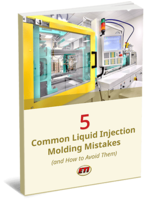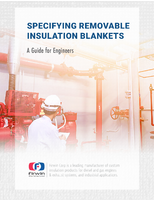ASTM Standard helps assure implantable medical device safety.
Press Release Summary:
ASTM WK19883, Test Method for Conducting and Evaluating Galvanic Corrosion Tests of Medical Implant Devices, is being developed by Subcommittee F04.15 on Material Test Methods. Cardiovascular, orthopedic, neurovascular, and dental implants will be evaluated using this standard. Making sure these devices do not experience galvanic corrosion helps assure they are biocompatible and can function as intended in the human body without degrading or eliciting an unwanted response.
Original Press Release:
Proposed New ASTM Standard Will Help to Assure Implantable Medical Device Safety
W. CONSHOHOCKEN, Pa., —Determining the mechanical performance and biocompatibility of an implantable medical device are crucial steps in evaluating the device’s safety and efficacy. A proposed new ASTM International standard will be used to help assess device performance by examining the potential for galvanic corrosion of implants. ASTM WK19883, Test Method for Conducting and Evaluating Galvanic Corrosion Tests of Medical Implant Devices, is currently being developed by Subcommittee F04.15 on Material Test Methods, part of ASTM International Committee F04 on Medical and Surgical Materials and Devices.
“Because the ultimate goal of testing is to demonstrate safety and efficacy of devices for implantation in the human body, it is important that there be very clear guidelines for how the testing is conducted so that the data generated can be critically evaluated,” says Dr. Shari Nathanson Rosenbloom, director of failure analysis and biomedical devices, Corrosion Testing Laboratories Inc., and an F04 member.
According to Rosenbloom, testing must be clearly defined to ensure reproducibility from test to test and from test laboratory to test laboratory. In addition, the test environment (temperature, solution, aeration), equipment used (potentiostat, reference electrodes) and testing details (setup, sample preparation, test duration, parameters measured, etc.) need to be specified so that the test is performed consistently.
“This allows the regulatory agencies, such as the FDA, to evaluate the results and have confidence that they were obtained using a reliable protocol,” says Rosenbloom.
Cardiovascular, orthopedic, neurovascular and dental implants are among the implant types that will be evaluated using this standard. “Making sure these devices do not experience galvanic corrosion helps assure they are biocompatible and can function as intended in the human body without either degrading or eliciting an unwanted response, such as inflammation, allergy or even toxicity,” says Rosenbloom.
Once approved, the proposed standard will be used by medical device manufacturers who perform in-house testing, as well as outside laboratories that perform the testing for the device companies. Regulatory bodies may also request or require testing performed to the standard.
Interested parties are invited to join in the standards developing activities of F04.15. Once ASTM WK19883 has been approved as a standard, laboratories are welcome to participate in interlaboratory testing with the goal of writing a precision and bias statement. In addition, the subcommittee is considering the possibility of developing a proposed standard on metal ion release.
To purchase ASTM standards, visit www.astm.org and search by the standard designation, or contact ASTM Customer Relations (phone: 877-909-ASTM; sales@astm.org). ASTM International welcomes participation in the development of its standards. For more information on becoming an ASTM member, visit www.astm.org/JOIN.
ASTM International is one of the largest international standards development and delivery systems in the world. ASTM International meets the World Trade Organization (WTO) principles for the development of international standards: coherence, consensus, development dimension, effectiveness, impartiality, openness, relevance and transparency. ASTM standards are accepted and used in research and development, product testing, quality systems and commercial transactions.
For more news in this sector, visit www.astm.org/sn-transportation or follow us on Twitter @ASTMTransport.
ASTM Committee F04 Next Meeting: May 6-9, 2014, May Committee Week, Toronto, Ontario, Canada
Technical Contact: Shari Nathanson Rosenbloom, Ph.D., Corrosion Testing Laboratories Inc., Newark, Del., Phone: 302-454-8200; shari@corrosionlab.com
ASTM Staff Contact: Pat Picariello, Phone: 610-832-9720; ppicariello@astm.org
ASTM PR Contact: Barbara Schindler, Phone: 610-832-9603; bschindl@astm.org Â




